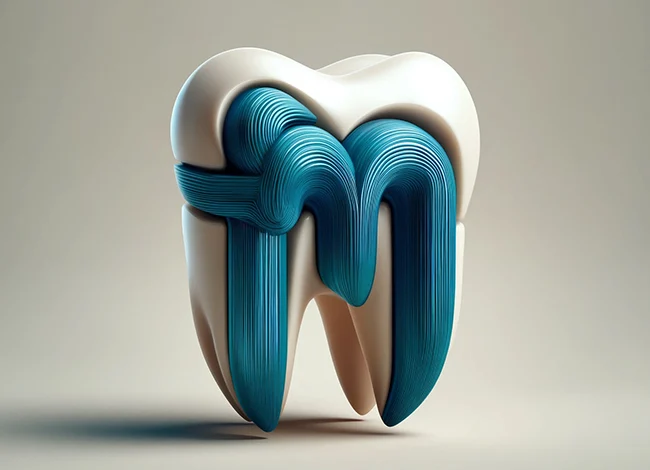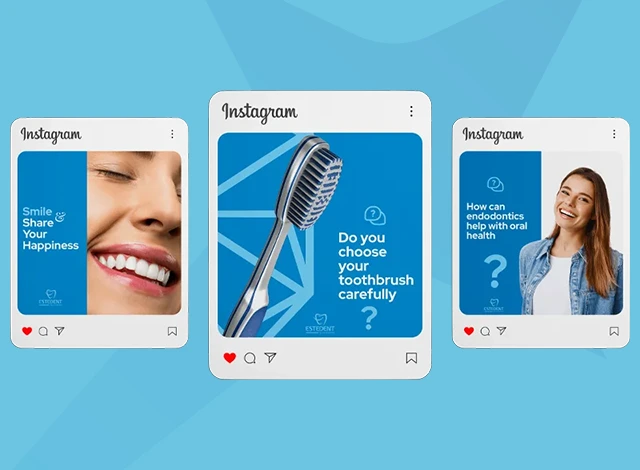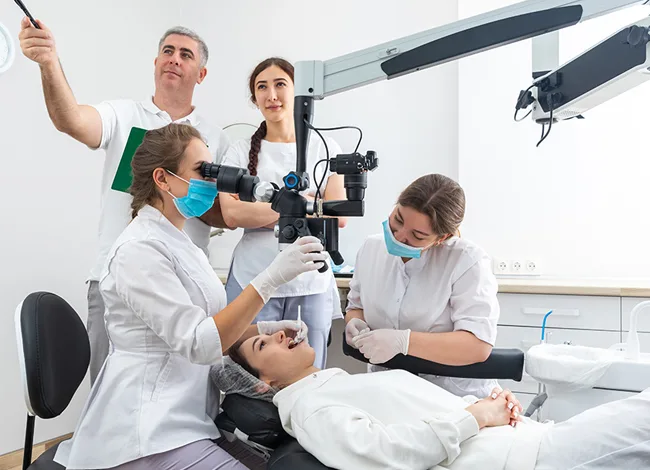Table Of Contents
Services Offered by Dental Prosthetic Laboratories
Dental prosthetic laboratories play a vital role in maintaining and improving oral health. These laboratories produce customized appliances and prosthetics with the mission of restoring patients’ smiles and enhancing their overall quality of life. Dental and prosthetic laboratories strive to achieve the best results for patients by utilizing the latest technology, skilled craftsmanship, and high-quality materials.
Dental and prosthetic laboratories offer comprehensive solutions for various dental treatments and prosthetic needs. Equipped with advanced technology and expert technicians, these laboratories provide services tailored to the needs of each patient. These services, which offer both aesthetic improvements and functional enhancements, help patients regain their smiles and, consequently, their self-confidence. As a result, dental and prosthetic laboratories hold an important place in the field of oral health and continually improve their services by keeping up with advancing technologies.
What Do Dental Prosthetic Laboratories Do?
Produce Custom Restorations: Dental laboratories produce a wide range of dental restorations based on prescriptions and molds provided by dentists. These restorations are usually made from high-quality materials such as porcelain or metal, ensuring the patient’s teeth appear healthy and natural.
Design and Create Dental Prosthetics: Skilled technicians in laboratories design and produce prosthetics that replace missing teeth and restore oral functions. These prosthetics help improve patients’ chewing, speech, and overall oral health.
Repair and Modify Dental Instruments: Dental laboratories offer repairs and adjustments to maintain the functionality and longevity of restorations. This ensures that patients can use their prosthetics for a long time and improves the performance of the prosthetics.
Dental and prosthetic laboratories collaborate with dentists to offer a variety of services. These services cater to both aesthetic and functional needs, reviving patients’ smiles.
Special Services Provided by Dental Prosthetic Laboratories
1. Crown and Bridge Construction
Types of Crowns: Laboratories produce crowns using various materials to restore and protect damaged or decayed teeth. These materials include porcelain-fused-to-metal (PFM), full ceramic (zirconia, e.max), and gold. Each material offers different advantages in terms of aesthetics and durability.
Types of Bridges: Bridges are used to replace one or more missing teeth. Laboratories produce various types of bridges such as traditional bridges, cantilever bridges, and implant-supported bridges. These bridges are designed to restore oral functions and improve the aesthetic appearance of patients.
Materials: Crowns and bridges are made from different materials depending on patient needs and budgets. Each material type offers specific advantages, and dentists work closely with laboratory technicians to determine the most suitable option.
2. Removable Prosthetics
Complete Dentures: Complete dentures replace all the teeth in an arch. These prosthetics significantly improve patients’ quality of life by enhancing chewing ability, speech, and aesthetics. Complete dentures are custom-designed and produced to fit the mouth perfectly.
Partial Dentures: Partial dentures replace several missing teeth using the remaining natural teeth for support. These prosthetics can be made from acrylic, metal, or flexible materials, depending on the patient’s existing teeth structure.
Implant-Supported Overdentures: Implant-supported overdentures provide superior stability and retention using dental implants. These prosthetics offer a more secure and natural-feeling alternative to traditional removable dentures.
3. Orthodontic Devices
Fixed Orthodontic Devices: Fixed orthodontic devices are used in treatments to straighten teeth. Laboratories create various bracket systems, including traditional metal braces, clear ceramic braces, and lingual braces.
Removable Orthodontic Devices: Removable orthodontic devices include retainers, thumb-sucking prevention appliances, and expanders. These devices support dental and jaw development.
4. Other Services
Custom Mouthguards: Laboratories produce custom mouthguards to protect athletes’ teeth during sports activities.
Night Guards: Night guards are used to prevent damage caused by teeth grinding (bruxism).
Surgical Stents: Surgical stents are used to ensure precision in procedures such as dental implant placement.
Sleep Apnea Devices: Laboratories work with dentists to create devices for sleep apnea treatment.
Laboratory Working Process
Dental laboratories play a crucial role in creating perfect smiles by working closely with dentists to deliver customized restorations and prosthetics. The process begins when dentists take precise measurements and impressions of the patient’s teeth, ensuring that every detail is captured. These measurements, along with detailed prescriptions, are sent to the laboratory, where skilled technicians use their expertise to design and plan the restorations. This initial step involves choosing the most suitable materials, such as porcelain or zirconia, based on the patient’s needs for both functionality and aesthetics. Every restoration is tailored to fit seamlessly into the patient’s mouth, ensuring a natural look and feel.
Once the planning is complete, the laboratory combines traditional craftsmanship with cutting-edge technology, such as CAD/CAM systems and 3D printing, to bring the designs to life. These technologies allow for precision in manufacturing crowns, bridges, dentures, and other prosthetics. After production, each piece undergoes rigorous quality checks to ensure perfect fit, durability, and aesthetic appeal. The completed restorations are then sent back to the dentist, who fits them into the patient’s mouth, giving them a functional and beautiful smile.
Collaboration Between Dentists and Dental Technicians
The partnership between dentists and dental technicians is essential for ensuring the success of dental treatment. Dentists rely on technicians to turn their diagnoses and treatment plans into reality through the creation of custom restorations and prosthetics. This collaboration begins with the dentist taking detailed impressions and measurements of the patient’s teeth, along with providing specific guidelines and requirements. The technician then uses this information to design and fabricate a solution that not only restores the functionality of the patient’s mouth but also enhances its aesthetic appeal. This close working relationship ensures that the end result meets both the dentist’s and the patient’s expectations.
Effective communication between the dentist and dental technician is key to resolving any issues that may arise during the fabrication process. If adjustments are needed, the technician will consult with the dentist to make necessary modifications, ensuring the final product fits perfectly and functions as intended. This collaborative approach leads to high-quality results, with patients receiving customized solutions that restore their oral health and confidence. By working together, dentists and technicians provide patients with the best possible care.
Benefits of Working with Dental Prosthetic Laboratories
Partnering with dental laboratories offers numerous advantages:
Focus on Clinical Care: Partnering with dental laboratories allows dentists to dedicate more time to patient care and complex diagnoses, as the laboratory handles the technical aspects of restorations. This ensures higher quality service and more personalized attention for each patient.
Access to Expertise: Dental laboratories employ specialized technicians who are skilled in areas like ceramics, implants, and prosthetics, providing dentists with advanced support for even the most complex cases. This collaboration results in superior treatment outcomes for patients.
Cutting-Edge Technology: Dental laboratories utilize the latest tools and technologies, such as CAD/CAM systems and 3D printing, ensuring precise and efficient production of dental restorations. This allows dentists to offer their patients the most innovative and effective treatment options.
Expanded Treatment Options: By working with a dental laboratory, dentists can offer a wider range of solutions, from crowns and bridges to complex prosthetics and orthodontic devices. This allows practices to cater to more diverse patient needs and provide comprehensive care.
Cost-Effectiveness: Outsourcing the production of restorations to a dental laboratory is often more cost-efficient than maintaining in-house production capabilities. This reduces overhead costs while ensuring high-quality, specialized work for dental practices.
Trends and Innovations in Dental Laboratories
Technological advancements in dental laboratories are transforming the way dental restorations and prosthetics are created, improving effectiveness, speed, and patient satisfaction. One of the most notable innovations is the use of CAD/CAM technology, which allows for precise digital designs and faster production of crowns, bridges, and dental implants. This technology significantly reduces the time patients need to wait for their prosthetics, while also enhancing the accuracy of the final product. 3D printing is another innovation making waves in the industry, enabling the quick creation of complex dental models and customized prosthetics with incredible detail and precision.
Moreover, the use of biocompatible materials, such as zirconia and ceramic, has improved both the durability and aesthetic quality of dental restorations. These materials provide patients with more natural-looking and long-lasting solutions. Additionally, the integration of digital scanners into the workflow has eliminated the need for traditional impressions, offering a more comfortable experience for patients while increasing the precision of the final restorations. These trends and innovations are continuously enhancing the field, making dental treatments faster, more efficient, and ultimately better for the patients.
Educating Patients About the Role of Dental Laboratories
Explain the Process: Begin by briefly explaining the role of the dental laboratory in creating custom restorations. Describe the steps involved, from taking impressions of the teeth to producing the final product. By providing patients with a clear understanding of how their prosthetics or restorations are made, they will feel more confident in the process.
Transparency in Material Selection: It’s important to explain the different material options available for restorations (such as porcelain, zirconia, metal, etc.) and why certain materials are chosen for specific treatments. When patients understand the reasons behind material selection, they are more likely to actively participate in treatment decisions and feel more informed about their oral health.
Emphasize the Team Approach: Highlight that dental treatment is a team effort between the dentist and skilled laboratory technicians. By explaining the collaborative nature of this process, patients gain a better appreciation for the expertise and precision involved in their treatment. Knowing that a dedicated team is working together to create the best possible outcome will increase their trust in the treatment plan.
This educational process not only enhances patient satisfaction and involvement but also helps prevent misunderstandings. By maintaining transparency and clear communication at every stage of the treatment, patients are more likely to have confidence in the care they receive and make well-informed decisions about their oral health.
Additionally, patients should be informed about the use of advanced technologies like CAD/CAM systems, 3D printing, and digital scanners in dental laboratories. These innovations ensure accuracy and efficiency, reducing waiting times and improving the overall fit and functionality of the restorations. Educating patients on the types of materials used, such as zirconia or ceramics, also helps them make informed decisions about their treatment. Ultimately, by engaging patients in the process and highlighting the vital role of dental laboratories, dentists can build stronger trust and ensure a more positive treatment experience.
The Essential Role of Dental Prosthetic Laboratories
Dental and prosthetic laboratories are indispensable partners in modern dentistry. These facilities provide the expertise, technology, and craftsmanship required to produce custom restorations and prosthetics that transform smiles, improve oral functions, and enhance patients’ overall quality of life. The close collaboration between dentists and laboratory technicians fosters a shared commitment to delivering exceptional patient care. This partnership is crucial for achieving better outcomes, making treatment processes more efficient, and continuously advancing dental care through innovative solutions.
By offering cutting-edge, customized solutions tailored to patients’ health and aesthetic needs, dental laboratories play a pivotal role in the ongoing progress of oral healthcare and contribute to the improvement of healthcare service quality.
Dental Agency’s Services for Dental Prosthetic Laboratories
Dental prosthetic laboratories are central to the production and design of the prosthetics that dentists provide to their patients. These laboratories are crucial for the success of dental treatments. At Dental Agency, we offer comprehensive services to enhance the effectiveness and efficiency of dental prosthetic laboratories. Here are the details of the services Dental Agency offers to dental prosthetic laboratories:
Website Design and Development: We provide professional website design and development services to strengthen the online presence of dental prosthetic laboratories.
Digital Marketing and Advertising Management: We offer extensive digital marketing services to help dental prosthetic laboratories reach their target audience. These include social media campaigns, Google Ads, and SEO optimization.
Graphic Design and Brand Management: To enhance the corporate identity of dental prosthetic laboratories, we provide graphic design and brand management services.
Social Media Management: We manage the social media accounts of dental prosthetic laboratories to boost brand awareness and customer engagement.
Photography and Video Production: High-quality visuals are essential for promoting laboratory products and services effectively.
Content Writing and Blog Management: We offer content writing and blog management services to meet the digital content needs of dental prosthetic laboratories.
SEO Services: Our SEO services improve the visibility of dental prosthetic laboratories in search engines, helping them reach potential clients.
By providing these services, Dental Agency helps dental prosthetic laboratories build a strong digital presence, enhance their brand image, and grow their customer base.
Frequently Asked Questions
What is the role of dental laboratories in dentistry?
Dental laboratories create custom restorations such as crowns, bridges, and dentures based on dentists’ specifications.
What materials are commonly used in dental restorations?
Common materials include porcelain, zirconia, metal, and acrylic, chosen for their durability and aesthetic qualities.
How do dental laboratories collaborate with dentists?
Dentists provide impressions and treatment plans, while dental technicians craft restorations that meet the functional and aesthetic needs of patients.
What are the benefits of using digital technology in dental labs?
Digital technology, such as CAD/CAM systems, improves accuracy, speed, and patient satisfaction by producing precise restorations.
What is the significance of dental impressions?
Dental impressions capture the exact shape of a patient’s teeth and gums, serving as a guide for creating custom restorations.
Why is material selection important in dental prosthetics?
Choosing the right material affects the longevity, functionality, and appearance of the prosthetic, tailored to each patient’s specific needs.
How do dental laboratories ensure the quality of restorations?
Laboratories perform thorough quality checks on each restoration to ensure a perfect fit, durability, and aesthetic appeal.
What are the types of dental prosthetics produced by laboratories?
Laboratories produce a variety of prosthetics, including crowns, bridges, complete dentures, partial dentures, and implant-supported restorations.
What is the process of creating a crown in a dental laboratory?
The process involves designing the crown using digital or traditional techniques, choosing the material, and fabricating it with precision tools.
How can educating patients about dental labs improve their experience?
Educating patients builds trust and confidence in the treatment process, as they understand the role of the lab in producing high-quality restorations.

Agency Experience
Customer Satisfaction
Web, Corporate Identity, Video
Average Response Time



